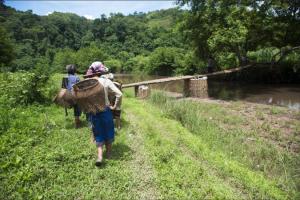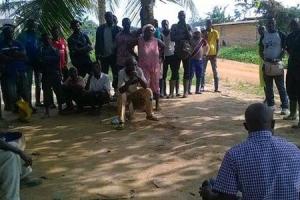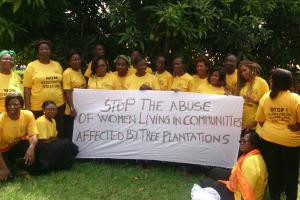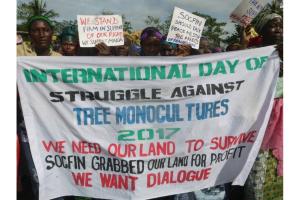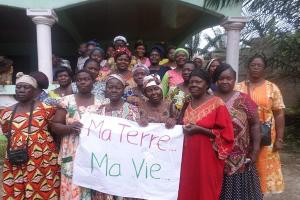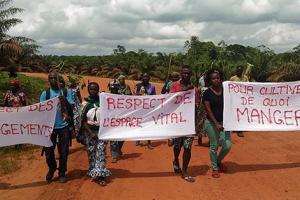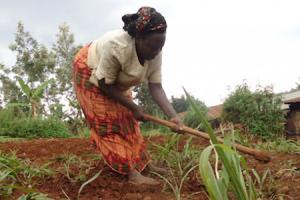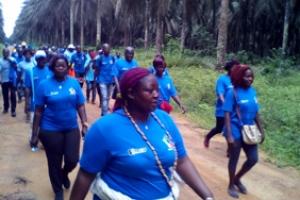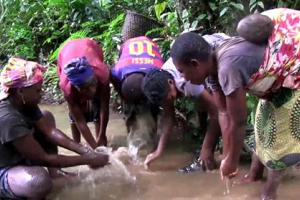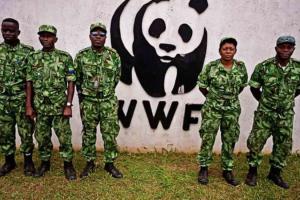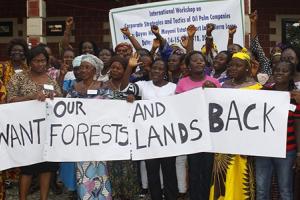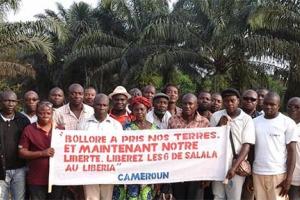In solidarity with the International Day of Peasant Struggle. A day to remember, emphasize and mobilize together against the persecution and violence that peasants suffer on a daily basis around the world.
Cameroon
Bulletin articles
29 April 2018
Bulletin articles
29 April 2018
The oil palm company Socapalm in Cameroon plans to renew its ISO 14001 certification, which expired in 2017. We expose the company's attempts to cover up the destruction caused to the communities and the environment
Action alerts
7 March 2018
International Press release. March 7, 2018.
Women demand that oil palm companies stop violence and give back community land
Bulletin articles
7 March 2018
This bulletin, on International Women's Day, is a call for direct and radical solidarity with those women who suffer, resist, organize and mobilize against the daily violence and abuse that industrial plantations cause.
Bulletin articles
7 March 2018
From rapes, forced body searches and searches of private spaces, to the risk of losing their lives: this article calls on us not to be accomplices to the violence women living around tree plantations in Cameroon suffer.
Bulletin articles
7 March 2018
A woman from the village of Mbonjo 1, Cameroon, which has witnessed the impact of industrial palm oil plantations and the constant presence of the military, calls for international solidarity and protection of right to life and freedom.
Bulletin articles
7 March 2018
Covered under the shade of oil palm companies in Cameroon: A recount of the abuses that women suffer
Plantations are increasingly surrounding and engulfing communities. Women must walk through company-occupied lands in order to seek their livelihoods. This, among other things, can cost them their lives.
Other information
7 March 2018
The sixth and latest issue of the magazine “Trait d’Union“, a trimestral magazine and liaison of the associations of populations surrounded by oil palm plantations from SOCAPALM, workers’ unions and oil palm planters, was released. The magazine shares over 15 relevant articles highlighting different aspects of the struggles surrounding these oil palm plantations in Cameroon. This time, we want to emphasize two articles:
Bulletin articles
23 November 2017
In West and Central Africa, the many radically different ways in time and space of how people relate to and manage land reflects the many forms of customary tenure that interact and overlap between themselves as well as with statutory law. This article highlights the reflections of four activists from West and Central Africa.
Other information
23 November 2017
A new Survival International report documents serious instances of widespread and systematic human rights abuses between 1989 and the present day in Cameroon, the Republic of Congo, and the Central African Republic (CAR) by wildlife guards funded and equipped by the World Wildlife Fund (WWF) and the Wildlife Conservation Society (WCS), the parent organization of New York’s Bronx zoo. Documented abuses and harassment are likely just a small fraction of the full picture of systematic and on-going violence, beatings, torture and even death.
Bulletin articles
25 September 2017
Large-scale monoculture plantations “rob women of everything they have as they take the agricultural lands and forests that women depend upon for their livelihoods and for feeding their families”. This is part of the final declaration of a workshop organized in Port Loko, Sierra Leona, in August 2017, which brought together women from Sierra Leona’s Northern, Southern and Eastern regions, together with representatives from Cameroon, Liberia and Guinee. (1)
Bulletin articles
21 September 2017
Photo: SOCFIN
